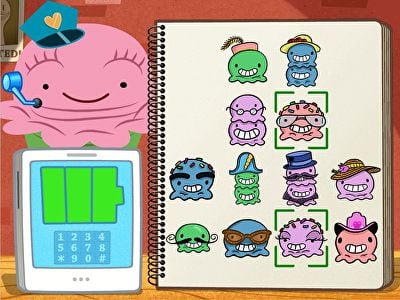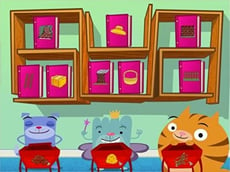Educational Preschool Collecting and Organizing Data Games
About Educational Preschool Collecting And Organizing Data Games
On Education.com, preschool collecting and organizing data games help children develop foundational math and categorization skills through engaging activities. These games focus on sorting, classifying, and graphing everyday items by color, shape, size, or type-promoting hands-on learning that makes math concepts accessible and fun. Educational activities include color sorting with pom-poms or blocks, shape matching games, and organizing objects into groups. Parents and teachers can use printable worksheets and interactive digital games to construct meaningful learning experiences.
Educators can access structured lesson plans, printable charts, and digital games that reinforce concepts like grouping, pattern recognition, and data representation. These resources incorporate real-world examples and age-appropriate prompts, allowing students to practice sorting and analyzing objects while building critical problem-solving skills. Organized data and visual graphs in classroom or home settings serve as foundational tools for early math instruction, pattern recognition, and observation.
At home or in the classroom, structured organizing activities save time by providing ready-to-use tools that support children’s exploration of data collection and classification. Educators can monitor progress through assessments using printable charts or digital tracking, while parents can follow along with guided exercises that encourage independence and strategic thinking. Recognizing early categorization skills through game-based learning sets the stage for more advanced math, science, and logical reasoning pursuits.
Educators can access structured lesson plans, printable charts, and digital games that reinforce concepts like grouping, pattern recognition, and data representation. These resources incorporate real-world examples and age-appropriate prompts, allowing students to practice sorting and analyzing objects while building critical problem-solving skills. Organized data and visual graphs in classroom or home settings serve as foundational tools for early math instruction, pattern recognition, and observation.
At home or in the classroom, structured organizing activities save time by providing ready-to-use tools that support children’s exploration of data collection and classification. Educators can monitor progress through assessments using printable charts or digital tracking, while parents can follow along with guided exercises that encourage independence and strategic thinking. Recognizing early categorization skills through game-based learning sets the stage for more advanced math, science, and logical reasoning pursuits.



















